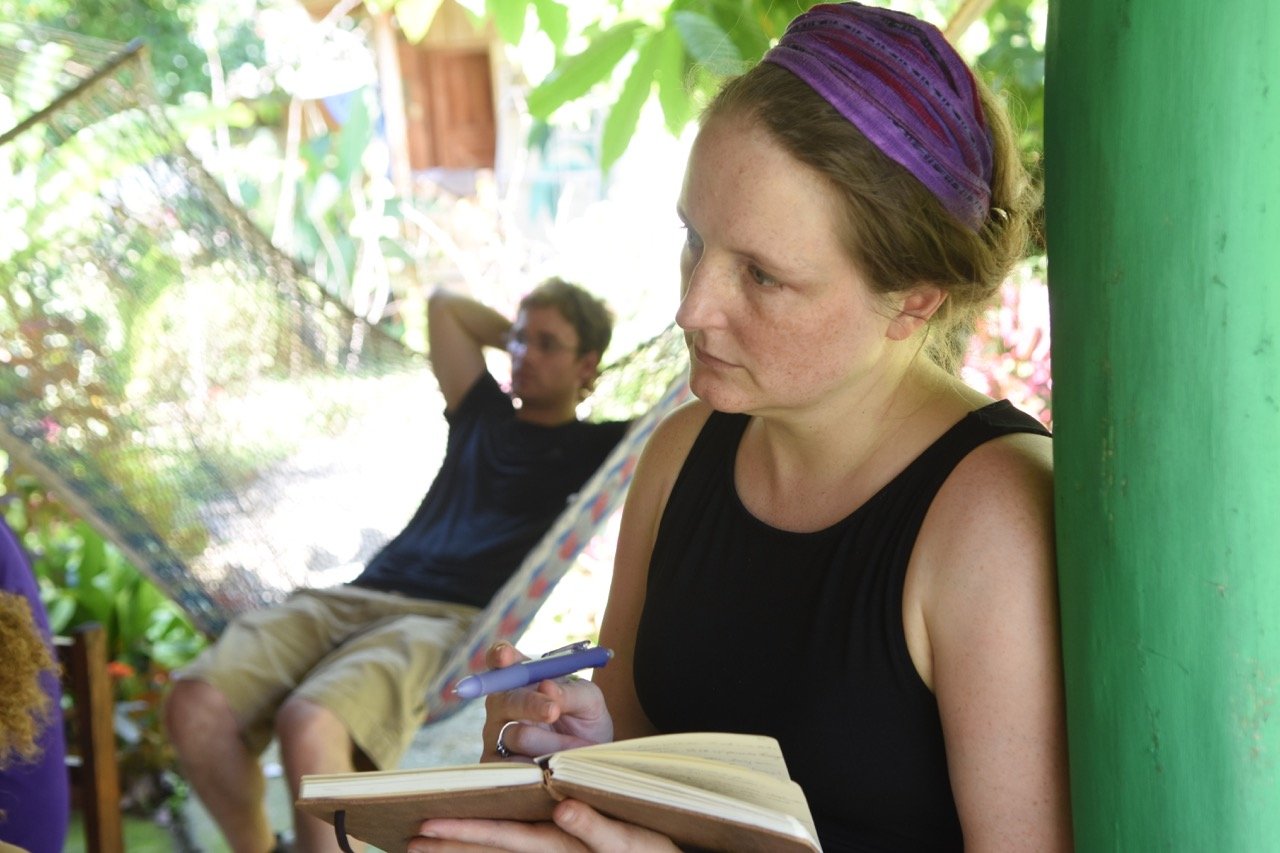Program on Sustainability in Costa Rica
Vincent Delgado; Senior Academic Specialist, Residential College in the Arts and Humanities, Michigan State University
Which of the Radical Reciprocity themes does this project align with?
-
Pluriversality
Conscious ontological engagement with and building of “worlds” through devaluation of “expert” knowledge in favor of co-generation of multiple knowledge (or worlds). University seeks to become a “world in which many worlds fit.”
-
Co-construction
Projects, programs and relationships are intentionally co-generated from inception.
-
Reciprocity
Relationships co-create and sustain clear benefits for all involved.
-
Multidirectional
Knowledge, including lived experience, flows both ways between university and community.
In fall of 2019, The Residential College in the Arts and Humanities, after a three-year pilot program, approved the permanent posting of an academic specialist in Costa Rica to coordinate a network of community-based partners across the Central America country. This network collaborates to welcome co-generative engagement with MSU students, faculty and other community partners on arts and humanities projects that respond to challenges related sustainability, climate justice and community resilience. This work takes the form of community participatory research, design, art, education abroad and other projects that address root causes and co-create new knowledge. To date, hundreds of faculty, students and community partners have collaborated to respond to significant issues including land enclosure, youth self-harm, climate change, tourism impacts and education across the country.
In 2022 alone, partners are collaborating to co-design and build a new education center for indigenous and campesina girls, a reserve near the capital San Jose, a lookout platform above the San Luis valley, a new indigenous social services center, and a major art installation on youth, privatization and land in Monteverde. This last project will coordinate with a STEM-focused art project on youth, justice and water in Detroit and result in visits by students, teachers and artists from Detroit as well as important art exhibits on MSU's campus and in Detroit. Students also engaged in community participatory research to evaluate institutional responses high indigenous suicide rates, youth educational programming and community development programs. Earlier in 2022, the program welcomed Michigan foundation, academic and business leaders to Costa Rica for two-weeks of discussions and visits with leaders in sustainable development. Finally, program partners have developed a proposed design justice minor for the university.
At the core of the program is the idea that university and community networks can co-generate responses to root causes issues related to justice, sustainability and resilience across political and cultural boundaries -- including those institutionalized by nation-states and educational institutions.






Community Partners
-
Permaculture coffee farm that uses proceeds to offer local and international educational programs on sustainability.
-
Artists collective focused on youth and movement arts.
-
Campesinx community development association.
-
Community foundation.
-
Sustainable development association focused on water protection.
-
Community-run research and education association focused on sustainability.
-
After-school educational and personal development organization for campesina, indigenous and afro-Caribbean girls, ages 7-12.
-
Territorial government of the Bribri Autonomous Territory.
Recent Programs
Design for the Common Good
Remote course with the College of Engineering on community participatory design alternatives through community projects in Costa Rica (Spring 23; Fall 24)
Design Justice
Embedded education abroad course on pluriversal design practices that engages communities in conversations and solutions related to a critical justice issue. (Spring 23; Fall 24)
Community and Sustainability in Costa Rica
Semester-long education abroad program focused on intensive Spanish, community participatory research methods and alternatives to development. (Summer 23; Spring 24)
[un]liberated imaginaries
Youth engaged arts and dialogue project with Centro Cultural RioChante to reduce youth self-harm activities related to land privatization and reduced access to nature in Monteverde (2022-2024)
Escuela Ambiental
Co-design and development project to re-imagine a community-run lodge and restaurant facility into a school for sustainability and accessible reserve in Palmichal de Acosta, Costa Rica (2020-2023).
Chicas para Exito Education Center
Co-design and development project to construct a permanent learning home following a land invasion of a previous school and resulting challenges accessing space for learning (2017-2024).
Links
-
https://rcah.msu.edu/uniquely-rcah/education-away/costa-rica.html

